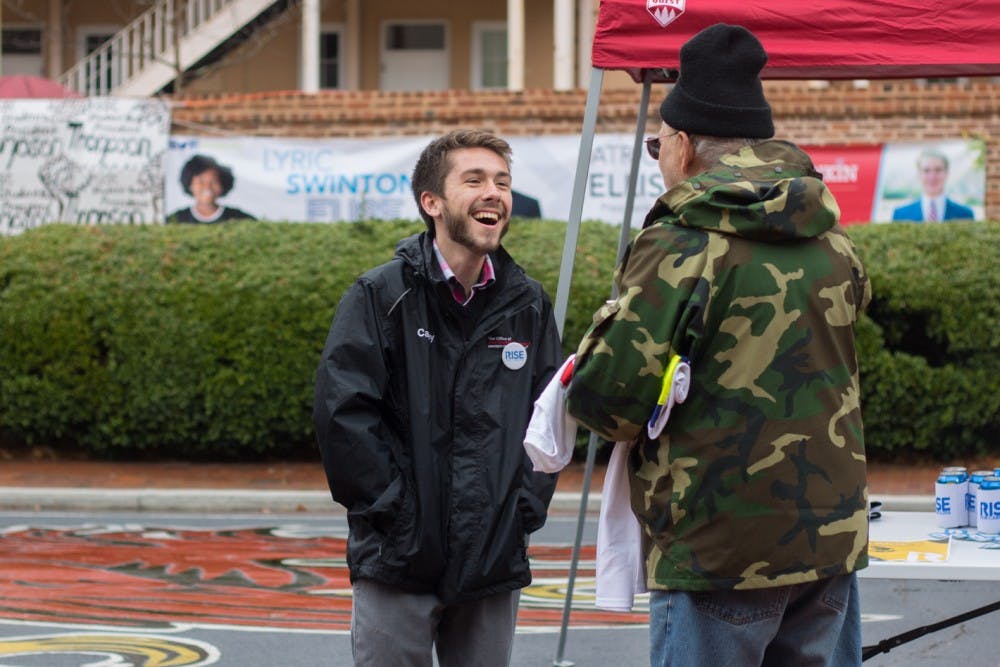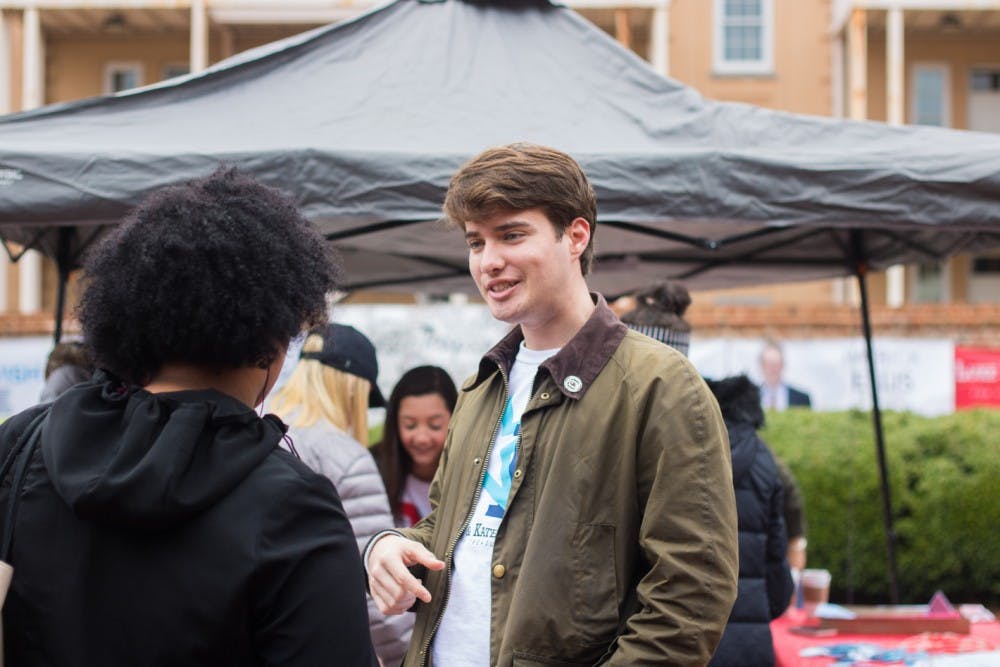Student Government candidates began hard campaigning with tabling on Greene Street Wednesday afternoon.
Candidates and staffers from the Thompson, Rankin-Lewis, Rise, Spark, Fuse and Forward campaigns lined Greene Street with informational tables in front of Russell House from 11 a.m. to 3 p.m., handing out promotional materials and refreshments to passing students.

During tabling, candidates gave out buttons, stickers, T-shirts, pens, doughnuts, coffee, candy, kombucha tea and soft drink cans with branded sleeves. While candidates and staff members were present at their tables to talk about their campaigns, most efforts were on distributing items to students as they passed.
Gabe Hoover, a first-year environmental science student who walked through the tabling and took some items along the way, spoke about the experience.
“It’s just a barrage of people saying 'vote for X, Y and Z,' handing you get free stuff; people pinning stickers to your chest,” Hoover said.
Hoover described the experience as impersonal, stating the campaigns were focused more on distributing items than giving students information about their policies.
“It’s relying on the voter to investigate the platforms,” Hoover said.
Hoover did note, however, that the Swinton-Davish Fuse campaign took a slightly different approach. While the Fuse staff did have some people beyond the table distributing items, it largely relied on students to come up to the table to receive items. Hoover said this approach enabled him to have a conversation with Sophie Davish, the vice-presidential candidate, about the campaign’s platform.
“After speaking with Sophie, she gave me the key points of their campaign, so I’m gonna check out their website certainly,” Hoover said.
Chelsea Bines, a third-year broadcast journalism student, had a positive impression of the tabling, saying the approach allows for all the campaigns to reach the campus.
“I actually love it,” she said. “I feel like it brings more diversity to the campus, and I just feel like everybody’s getting out there and letting their voices be heard,” Bines said.
Bines also said she believes the tabling approach levels the playing field for the various candidates by giving them all an equal chance to reach students.
“I feel like everybody has a fair opportunity with it,” Bines said.
Hard campaigning involves distribution of items and overtly arguing for one’s campaign. Prior to this, candidates were limited in their access to students. During this time, many candidates spoke to classes and organizations about their platforms or communicated via social media. For candidates like Jacob Thompson, who is running without a social media presence, that approach may have put them at a disadvantage.
“It’s not a popularity contest when they do it like this,” Bines added
Mercutio Benson, a second-year biochemistry and molecular biology student who walked along the tables, expressed a more pessimistic view of its effect.
“Obviously, I don’t think it really focuses on any issues, which should be what a campaign is about, but in terms of getting people to vote, it might be effective,” Benson said. “I think most people just come here and grab some free stuff, and they might hear out what someone is saying.”
Benson said this approach focused more on name recognition than conveying the platform of a campaign, which he believes should be prioritized.
“So in terms of both focusing on what the campaign should really be about and in terms of actually getting people to vote for a certain person, it’s not a very effective way,” Benson said. “But I do enjoy the free coffee.”

